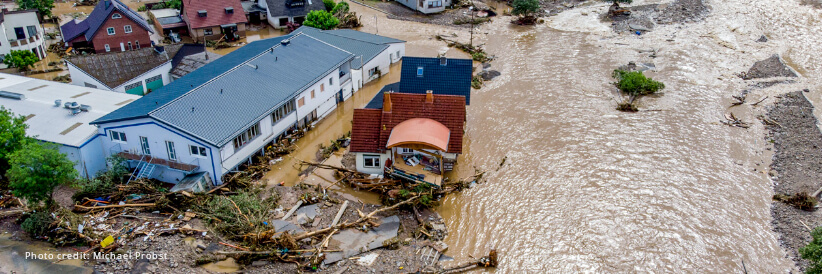Central Europe is experiencing its biggest floods in decades, which may soon become the new normal, warns the International Federation of Red Cross and Red Crescent Societies (IFRC).
Thousands of Red Cross volunteers in Austria, Czech Republic, Moldova, Poland, and Romania are working around the clock to respond to the needs of affected people. In the last few days, torrential rain from Storm Boris has caused massive flooding in these countries, leading to flooded homes, power outages, transport disruption, and damaged infrastructure.
“As Europe is warming much faster than the rest of the world, we are facing a possible future where such floods are not called historic, but frequent or even annual. We must brace ourselves to adapt to this new reality,” says Andreas von Weissenberg, the IFRC’s Head of Health, Disasters, Climate & Crises in Europe.
Among the worst affected areas is Lower Austria, where 1,750 people had to leave their homes and go to temporary shelters. Many of them lived through a similar crisis during the floods of 2002 and are in fear of losing everything once again.
More than 2,500 Austrian Red Cross volunteers and staff are responding, assisting with evacuations, setting up temporary shelters, and caring for displaced people.
In eastern Romania, the floods have already claimed the lives of six people. In the hardest-hit counties of Galati and Vaslui, more than 5,000 homes have been flooded and hundreds of people have been evacuated. The Romanian Red Cross has distributed 20 tonnes of food and drinking water and launched an appeal for donations to support the affected people.
Other countries in the region including Germany, Hungary, and Slovakia remain on high alert, with Red Cross teams coordinating with local authorities and ready to respond. Rainfall is due to continue, while water levels are expected to peak during.
“While countries in Europe have made significant steps in understanding and preparing for climate risks, the implementation is lagging behind the rapidly increasing risk levels. We need to scale up climate adaptation action – including locally-led approaches and strengthening local capacities – and build preparedness and resilience,” says Andreas von Weissenberg.

